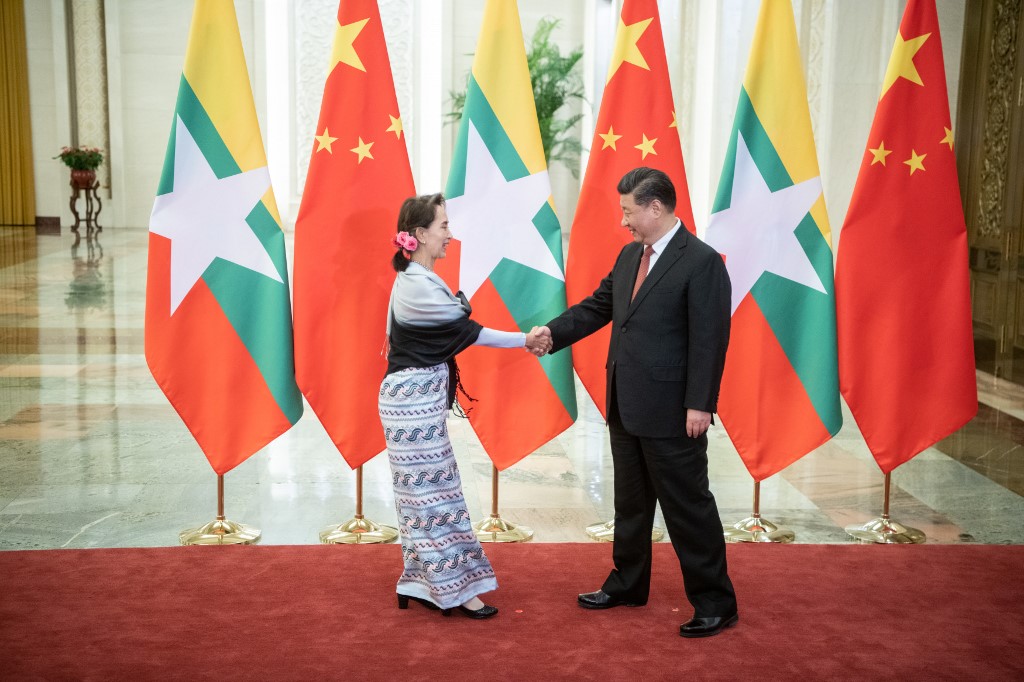
The leader of Myanmar’s big brother, Ko Ko China, is set for a two-day visit in the Golden Land next week.
Chinese President Xi Jinping will meet State Counsellor Aung San Suu Kyi and Myanmar military chief Min Aung Hlaing on January 17-18, Vice Foreign Minister Luo Zhaohui told a press conference on Friday.
Xi signed a memorandum of understanding (MoU) on the Kyaukphyu Special Economic Zone (SEZ) during his visit as vice president a decade ago.
This state visit—the first to the country by a Chinese president in 19 years—has been partly designed to advance construction of the SEZ, which, along with the Kyaukphyu deep-sea port, is a prized piece of China’s Belt and Road Initiative (BRI).
The project would provide access to the Indian Ocean, helping China to bypass the strategic chokepoint of the Strait of Malacca. It would also be the final stop in the China-Myanmar Economic Corridor (CMEC), which will stretch from Yunnan province to Mandalay and Yangon.
Of course, the historical visit is not all business–it also marks the 70th anniversary of the establishment of China-Myanmar diplomatic relations and a celebration of the fraternal bond between the two countries described as “pauk-phaw.”
One similarity between the siblings-in-spirit is their globally slated crackdowns on Muslim groups: the Uighurs of China’s far-western region of Xinjiang and the Rohingya of conflict-torn Rakhine—home also to the SEZ.
China has supported Myanmar at the UN amid the Rohingya crisis by attempting to stop a Security Council briefing on the crisis, weakening a council statement on the issue, and reducing the budget to investigate atrocities in the region.
The country also plays mediator in sending back Rohingya refugees from Bangladesh to Myanmar.
But, as the saying goes, nothing comes for free, with some analysts expecting China to exert more control over its investments in Myanmar as a form of reimbursement.
This is just one strand of Beijing’s long-held influence over its neighbour, which includes its role as Myanmar’s biggest trading partner and biggest lender as well as its significant role in the peace process, with its massive sway over some of the country’s most powerful ethnic armed groups.

